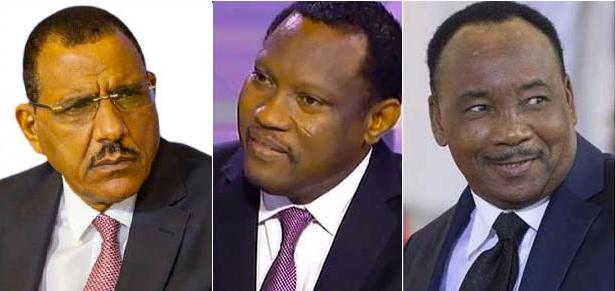Arab League summit embarrassment for Mauritania
Published on Tuesday 23 August 2016 Back to articles
This article was taken from Sahara Focus. The 27th Arab League summit – which both began and finished in the Mauritanian capital of Nouakchott on 25 July – was the most embarrassing and humiliating yet. Only six of the League’s 22 heads of state attended. The message to the rest of world, which paid the summit almost no attention, is that the Arab world is divided and in total disarray.
Qatar’s Emir, Sheikh Tamim bin Hamad Al Thani, was not greeted by Mauritania’s President Mohamed Ould Abdel Aziz and left after only two hours, saying that he had a prior engagement in South America. The other five heads of state were Kuwait’s Emir, Sheikh Sabah Al-Ahmad Al-Jaber Al-Sabah; Yemen’s President Abdrabbuh Hadi; Sudan’s President Omar al-Bashir; President Azali Assoumani of the Comoros, and President Ismaïl Omar Guelleh of Djibouti.
Notable among the absentees were King Salman bin Abdulaziz Al Saud of Saudi Arabia, who gave health reasons as a pretext, and the head of the Palestinian Authority, Mahmoud Abbas, who sent his foreign minister.
The crowned heads of the United Arab Emirates followed Morocco’s example by only sending only their foreign ministers. Egypt’s Abdelfattah el-Sisi, the outgoing president of the League, cried off at the last minute because of an overly busy schedule.
The African Union was, however, represented by its outgoing president, Chad’s dictatorial Idriss Déby Itno, who, according to the local media, followed the rather limited talks with great interest.
Little was said about security and terrorism in the Arab world, which was the summit’s main agenda. Perhaps the most constructive comment came from Mauritanian Foreign Affairs Minister Isselkou Ould Ahmed Izid Bih, who suggested his Arab counterparts might open up the Arab League to African countries, with which, he said, ‘We share great aspirations.’ It was not a bad idea in that it might at least enable such summits to gather a quorum.
More significantly, the summit, and its history of being moved from Morocco to Mauritania, shows the world just how poisonous relations between the capitals of the Mashreq and the Maghreb have become.
The summit was originally to have been hosted by Morocco and held in Marrakesh on 29 March. In February, however, Morocco decided not the host the summit, saying that it wanted to avoid giving a false impression of unity in the Arab world.
A statement from the Moroccan Foreign Ministry read, ‘Amid the lack of important decisions and concrete initiatives to submit to the heads of states, this summit will be just another occasion to approve ordinary resolutions and to pronounce speeches that give a false impression of unity … Arab leaders cannot confine themselves, once more, to simply analysing the bitter situation of divergences and divisions without giving decisive responses.’
The normal procedure is for the League to meet in the next country in alphabetical order, which in this case was Mauritania. President Abdel Aziz saw this as an opportunity for one-upmanship over his northern neighbour, with which relations had already reached a new low. He set out to demonstrate that he could offer the Arab world what Morocco could not.
That backfired horribly. Mauritania is not only a lightweight in the Arab world and is no match for Morocco’s far more extensive and established diplomatic service. Moreover, Morocco is a kingdom, and in the Arab world – as Mauritania has now discovered – kings tend to stick together.
Morocco was angered at Abdel Aziz’s readiness to take advantage of its decision, but it is now triumphant. Mauritania has been humiliated, both internationally and in its own media. The relatively independent domestic Mauritanian press, which is no great supporter of Abdel Aziz, has tended to ridicule the president’s diplomatic naïveté.
More seriously, it described the summit failure as a lesson to the Mauritanian government that it should further the natural interests of the Mauritanian people and move towards Economic Community of West African States (ECOWAS) rather than pursue what one newspaper called ‘the madness of unilateral administrative Arabism at the price of humiliation.’ So far Mauritania has refused to join ECOWAS.
The rather brief and scaled-down summit also demonstrated that Nouakchott did not have appropriate facilities to hold such an event. In its attempt to demonstrate that it could do so, the government wasted a considerable amount of money. It is unlikely to reveal how much. As for the general public, the regret and even anger expressed on social networks will have done nothing to enhance President Abdel Aziz’s standing or popularity.



